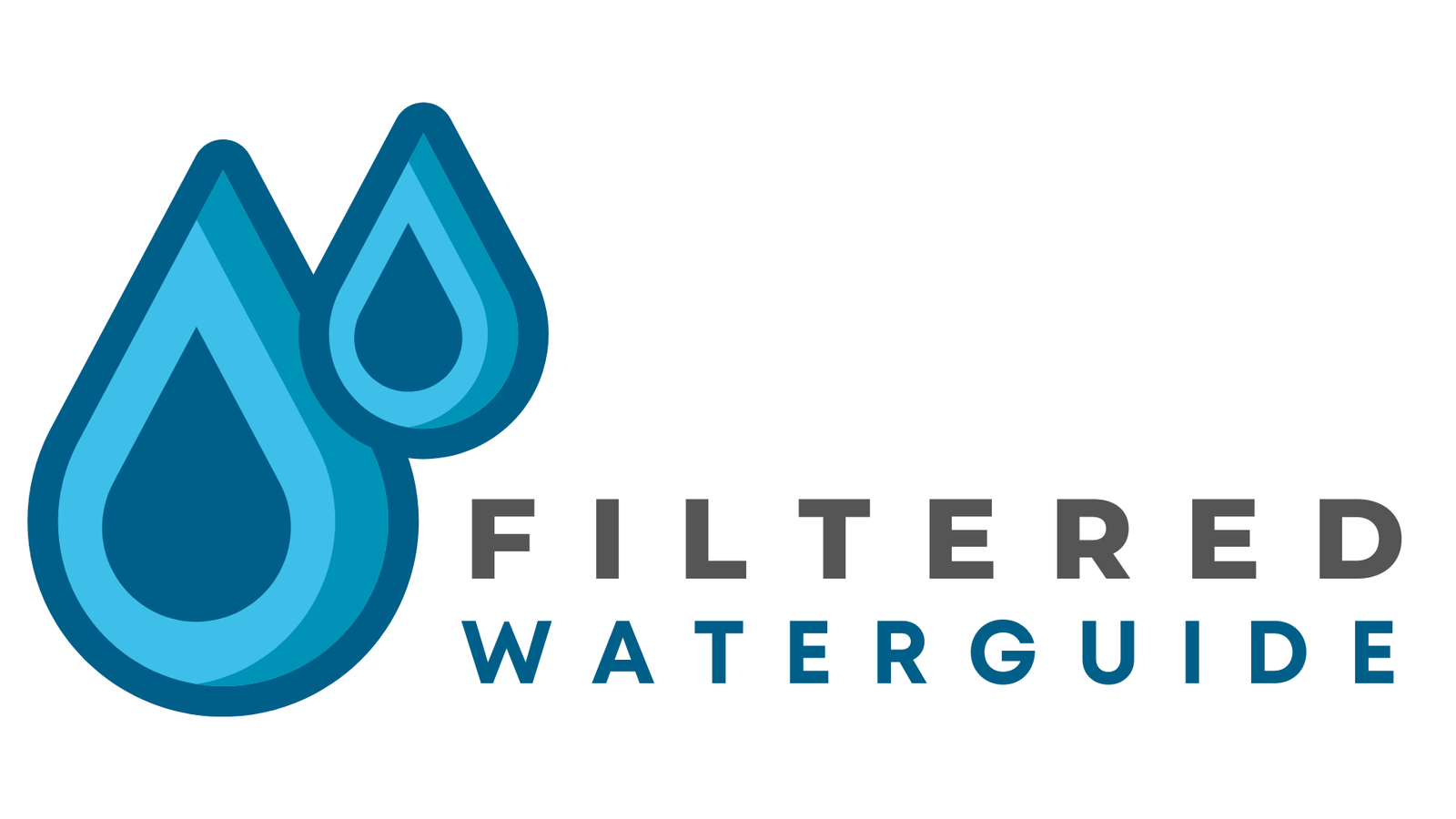Filteredwaterguide.com is supported by readers. If you purchase through referral links on our site, we make a commission at no extra cost to you. Learn more.
Does a Whole House Water Filter Remove Calcium?
One of the biggest potential problems you may have with the water that comes into your home is the presence of large amounts of calcium in it.
This is much more likely to occur if your home is supplied by a well as opposed to being on a municipal water supply.
If this is the case and you already own or about to purchase a whole house filter, then you may be wondering if your whole house filter will remove that calcium.
That’s why I am about to discuss where calcium in water comes from, does a whole house water filter remove calcium, and which types of whole house filters are best at doing this.
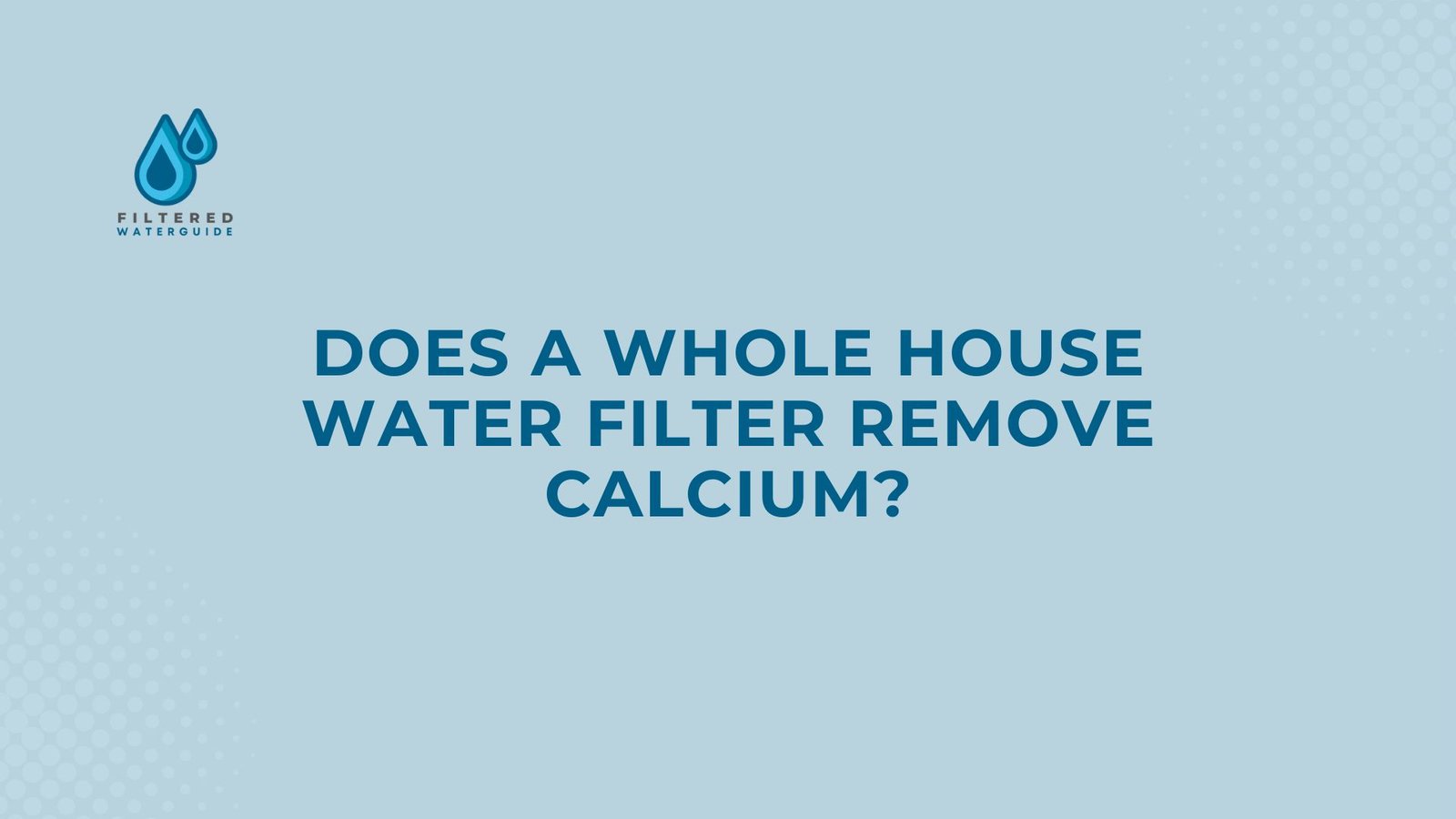
Does A Whole House Water Filter Remove Calcium?
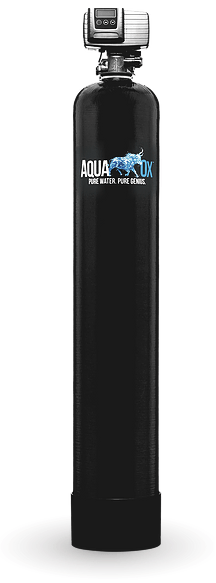
The answer to this question is both yes and no. Some types of whole house filters (also called media, point of entry, and whole home filters) do a good job at removing calcium while with others, calcium simply passes through them.
I will talk more about which types of point of entry filters are the most efficient when it comes to calcium removal a little later in this article.
Where Does Calcium in Water Come From
By far the biggest source of calcium that’s found in well or city water comes from the ground.
This mineral is picked up as water travels underground through calcium containing rock beds such as those made of calcite, apatite, fluorite, marble, limestone, gypsum, and dolomite.
Of these, gypsum and limestone are the biggest contributors to having a large amount of calcium present in your tap water.
How To Measure Calcium in Water
There are very few ways to specifically test for calcium in your household water but many ways to test for total water hardness.
The total hardness of your water tests for the presence of calcium and other hard water-related minerals.
Magnesium is another significant hard water-causing mineral and aluminum, barium, strontium, iron, zinc, and manganese to a lesser extent.
Usually everything from simple test strips that you use at home to the best test kits that use sophisticated lab analyses can be used to determine the hardness of your water.
I recommend getting professional lab analysis done on your home’s water by using a test kit made by a reputable company such as Tap Score.
Why Is Calcium in Water A Problem?
Have you ever been frustrated trying to clean a grayish scale-like substance off of your kitchen and bathroom fixtures?
That substance is called limescale and that means there is a good chance that you have a calcium problem in your tap water.
It’s also a substance that’s known to do much more than just cause limescale to form and be a nuisance on bathroom and kitchen surfaces.
Here are some of the other problems that having a high amount of limescale-forming calcium in your water causes:
- It can clog up your pipes
- Limescale can coat and ruin the heating elements on such appliances as water heaters and dishwashers.
- This substance leaves ugly spots on dishes and glasses
- Water with a high amount of calcium can cause brownish stains on white clothes
- It can shorten the useful life of plumbing fixtures
Calcium and Health Effects
You do have to be wary when trying to remove calcium from your tap water. That’s because according to health experts, calcium is an essential mineral for your body.
But there can also be the case where you ingest too much calcium. This can lead to such health concerns as weekend bones, the formation of kidney stones, and heart and brain functioning.
In the most severe cases, ingesting too much calcium can lead to an unwanted blood condition called Hypercalcemia. It’s a health condition that can significantly impact everything from your kidneys to your brain.
How To Remove Calcium from Water
Fortunately, there are several types of water filters that can be used to rid your tap water of excessive calcium.
1. Salt-Based Water Softeners
This is by far the most impactful whole house water filter when it comes to the removal of calcium from your tap water. Water softeners work by utilizing a highly effective form of calcium removal called an ion-exchange process.
These systems have two tanks. One main tank which contains resin beads and another brine tank that contains a salt solution.
To start the ion-exchange process, the salt solution from the brine tank is pumped into the main tank and coats the resin beads. This takes place because positively charged salt ions stick easily to the negatively charged resin beads.
However, when stronger positively charged calcium and other hard water-causing minerals enter the main resin tank, they take the place of the salt ions and stick strongly to the resin beads.
Salt-based water softeners leave almost no traces of calcium left in the water that comes out of your taps.
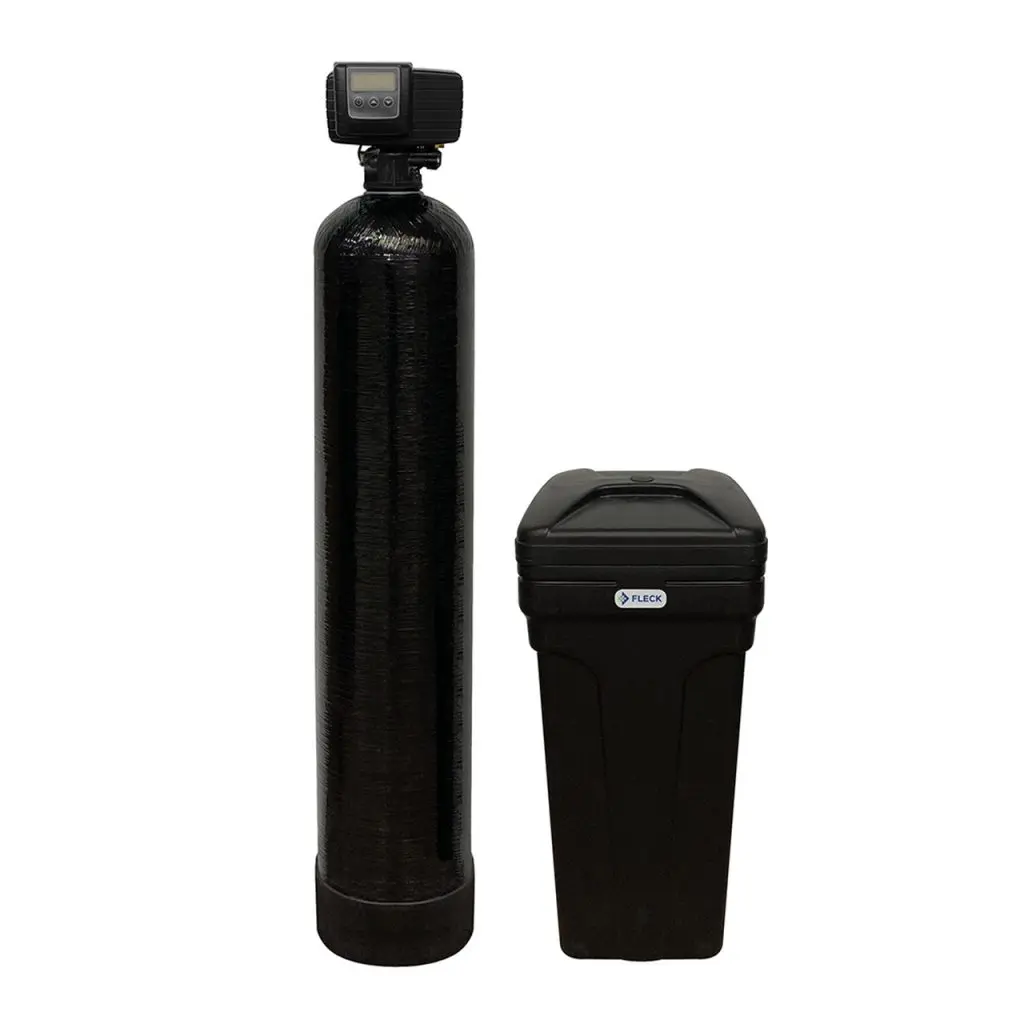
2. Salt-Free Water Softeners (also called Water Conditioners or Descalers)
These devices are not as effective as salt-based water softeners at removing calcium because they do not get rid of it and other hard water-causing minerals. They simply inhibit the ability of hard water minerals to form limescale.
If you are looking for a product that removes the buildup of limescale on your pipes and appliances but doesn’t actually get rid of the calcium from the water but instead changes it’s form then salt-free water softeners are a great option to consider.
3. Reverse Osmosis Filters
These types of water filters have membranes that have a very small pore size (often as small as 1-micron in diameter. That is a small enough pore size to filter out calcium and other hard water minerals.
The problem is that even the best reverse osmosis filters will become clogged very quickly if there is a large amount of calcium and other hard water minerals in the water that passes through them.
Take Steps to Remove Excess Calcium from Your Tap Water
Sure, if you have only a little bit of calcium in your drinking water then there is nothing to worry about. But anything higher than that can be a concern and you should do something about it.
This is especially true if you are dealing with constantly having to clean limescale off your kitchen and bathroom surfaces and fixtures.
In this case, I would suggest that you consider purchasing a good salt-based water softener or a combination system that includes both a water softener and water filtration system.
This will eliminate any hard water concerns that you have and the only drawback is you may have to take supplements to replace the healthy minerals that are removed from your drinking water.
